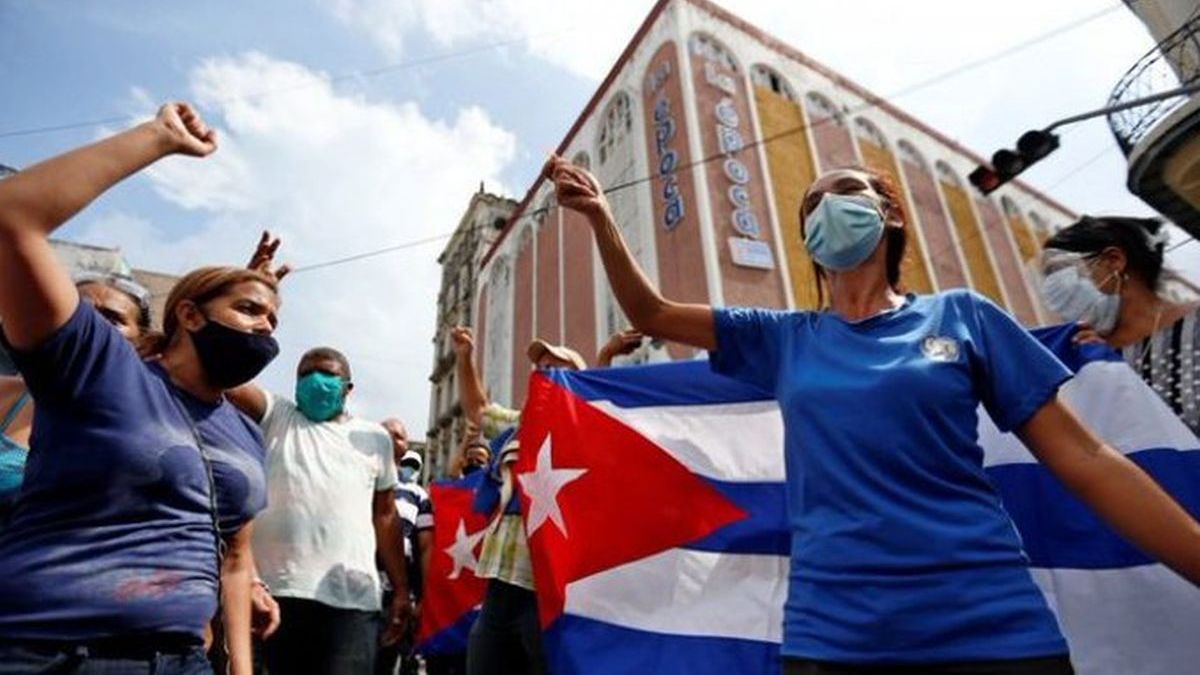Among the demands that they aspire to expose in the streets are claims for the liberation of the political prisoners, the start of a dialogue to resolve the “political, economic and social crisis” and criticism of the violence attributed to the regime in the July protests.
However, Archipelago ran into a ‘no’ from the authorities. The Old Havana Board of Directors responded to the request with a negative, alleging that the promoters have ties with the United States and “the manifest intention of promoting a change in the political system in Cuba,” according to the note released by the official press, recalled the Europa Press agency.
The conveners, however, decided to maintain their ‘Civic March for Change’ to confront “authoritarianism”. In this sense, they call on the population to join the rallies, not only with marches through the streets but also with symbolic gestures such as a casserole called at 20.00 (local time).
The executive of Miguel Diaz-CanelMeanwhile, he has defended his veto against the “counterrevolutionary provocation” that is coming, as the president himself described it this week. In this sense, for weeks and publicly, the Cuban authorities have made an effort both to justify the rejection of the demonstration and to warn of the alleged hidden interests.
For the Cuban Foreign Ministry, those who sought “the failure of socialism” with the July 11 protests “are frustrated and rushed in their plans,” so they conspire with “destabilizing actions” with a view to “provoking the incident that leads to the social outbreak that leads to the desired military intervention.”
Havana looks to Washington, which it sees as the ultimate instigator of these new challenges. It considers it proven that there are links between the organizers and the United States and that the survival of the ‘revolution’ initiated by Fidel Castro, at a time when the Cuban authorities recognize that the island is experiencing economic difficulties.
The elimination of dual currency and product shortages, exacerbated by restrictions to contain the Covid-19 pandemic, have contributed to inflation soaring. Prices in the informal market have shot up 6,900% in ten months, as the regime has recognized.
The general fear is that events such as those of July 11 will be repeated, a turning point in the repressive escalation in the eyes of the opposition. Cuban authorities reported on August 19 that 67 people had been convicted for their involvement in the aforementioned protests, the majority with sentences of between ten months and one year in prison.
However, the organization Cubalex It has encrypted more than a thousand people arrested, of which around half a thousand would remain behind bars. For its part, Human Rights Watch (HRW) denounced in a recent report that there were 130 victims of arbitrary arrests, ill-treatment and abusive criminal proceedings, while at least one protester lost his life.
The United States hopes that the Cuban authorities will respect the protesters and has even urged them to take the “opportunity” to “listen” to what they have to say, as opposed to the “repression of violence” and the “unjust arrests” with which they responded. to the July mobilizations.
France On Monday he urged Cuba to “guarantee” the right to demonstrate and to return the accreditations withdrawn from journalists from the Spanish agency EFE days ago.
Source From: Ambito
David William is a talented author who has made a name for himself in the world of writing. He is a professional author who writes on a wide range of topics, from general interest to opinion news. David is currently working as a writer at 24 hours worlds where he brings his unique perspective and in-depth research to his articles, making them both informative and engaging.




